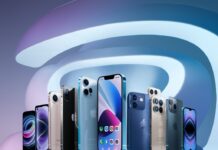Apple Inc (NASDAQ:AAPL) purchased Burstly, the maker of mobile app testing platform SkyRocket and in-app management platform SkyRocket. According to Bloomberg, the acquisition was confirmed by Kristin Huguet, the spokesperson for the iPhone and iPad maker, but did not provide any detail on the transaction.
TechCrunch was the first to report the acquisition quoted Huguet’s statement. She said, “Apple buys smaller technology companies from time to time, and we generally do not discuss our purpose or plans.”
Burstly recently announced that TestFlight will terminate its support for Android operating system effective March 21. The company also announced that it will discontinue its TestFlight SDK. In addition, its mobile analytics solutions, FlightPath was also shutdown.
According to TechCrunch, Burstly is known for keeping its transactions quiet. The company did not reveal to the media when it acquired TestFlight in 2011.
It is obvious that Apple Inc (NASDAQ:AAPL) is maintaining its strategy of acquiring smaller companies compared with its peers in the technology industry. The tech giant generally acquires smaller companies to improve its existing or future products and services.
In 2012, Apple Inc (NASDAQ:AAPL) bought AuthenTec, an independent fingerprint authentication company for $356 million. The tech giant integrated AuthenTec’s fingerprint sensor technology in the iPhone 5S, which was released in September last year.
Meanwhile, Google Inc (NASDAQ:GOOG) has been making large acquisitions. The search engine giant acquired Nest Labs, the maker of smart thermostat and smoke detector for $3.2 billion. The company recently bought SlickLogin, a sound authentication start-up based in Israel.
Facebook Inc (NASDAQ:FB) also made a significant acquisition lately. The social network giant purchased WhatsApp, a cross-platform mobile messaging company for approximately $19 billion in cash and stock. WhatsApp will receive $4 billion cash and $12 billion Facebook stock, plus $3 billion worth of restricted stock units (RSUs), which will vest over four years after the closing of the transaction.








